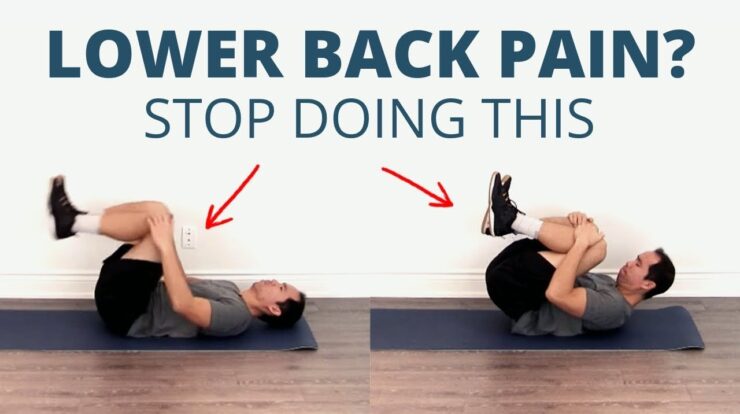
Gum disease can be a pain, but what if you don’t have access to a dentist? Fear not! This guide will teach you how to cure gum disease without a dentist using natural remedies, home treatments, and more.
From herbal concoctions to lifestyle changes, we’ll cover everything you need to know to get your gums back in tip-top shape.
Natural Remedies

Natural remedies offer potential solutions for treating gum disease. These remedies, derived from plants, herbs, and essential oils, possess antibacterial and anti-inflammatory properties that may help alleviate symptoms and improve oral health.
However, it’s crucial to note that natural remedies should not replace professional dental care. They can serve as complementary treatments, but they may not be sufficient to cure advanced cases of gum disease. Consulting a dentist for proper diagnosis and treatment is always recommended.
Gum disease can be a real pain, but there are ways to cure it without a dentist. If you’re looking for a natural way to treat your gum disease, you can try some of the methods outlined here . There are also some over-the-counter treatments that can help, but it’s always best to consult with a healthcare professional before starting any new treatment.
Herbs
- Green tea:Rich in antioxidants, green tea extract has antibacterial properties that may help reduce inflammation and prevent gum disease.
- Echinacea:This herb has immune-boosting effects and may help fight infections, including those in the gums.
- Aloe vera:Aloe vera gel has antibacterial and anti-inflammatory properties that may soothe gum irritation and promote healing.
Spices
- Turmeric:Curcumin, the active ingredient in turmeric, has anti-inflammatory and antioxidant properties that may help reduce gum inflammation.
- Clove:Clove oil has antibacterial and analgesic properties that may help relieve gum pain and inflammation.
- Ginger:Gingerol, the active compound in ginger, has anti-inflammatory and antimicrobial properties that may help prevent and treat gum disease.
Essential Oils
- Tea tree oil:This oil has strong antibacterial and antifungal properties that may help kill bacteria and reduce inflammation in the gums.
- Myrrh oil:Myrrh oil has antibacterial and anti-inflammatory properties that may help soothe gum irritation and promote healing.
- Peppermint oil:Peppermint oil has antibacterial and analgesic properties that may help freshen breath and relieve gum pain.
Home Remedies
Managing gum disease symptoms at home is possible with simple and effective remedies. These remedies utilize natural ingredients with antimicrobial and anti-inflammatory properties, helping to alleviate pain, reduce swelling, and improve oral hygiene.
Here are a few home remedies to consider:
Saltwater Rinse
- Mix 1/2 teaspoon of salt in a glass of warm water.
- Swish the solution in your mouth for 30 seconds.
- Repeat several times a day.
Saltwater rinses help reduce inflammation and kill bacteria in the mouth.
If you’re wondering how to cure gum disease without a dentist, there are a few things you can do. First, you can try using an over-the-counter mouthwash or toothpaste that contains fluoride. You can also try brushing and flossing your teeth more regularly.
If these methods don’t work, you may want to consider seeing a dentist for more advanced treatment. Here are some additional tips on how to cure gum disease without a dentist.
Hydrogen Peroxide Rinse
- Mix 3% hydrogen peroxide with an equal amount of water.
- Swish the solution in your mouth for 30 seconds.
- Rinse your mouth thoroughly with water.
- Repeat once or twice a day.
Hydrogen peroxide has antibacterial and antiseptic properties, making it effective in killing bacteria and reducing inflammation.
Tea Tree Oil Rinse
- Add 2-3 drops of tea tree oil to a glass of warm water.
- Swish the solution in your mouth for 30 seconds.
- Rinse your mouth thoroughly with water.
- Repeat once or twice a day.
Tea tree oil possesses antibacterial and anti-inflammatory properties, helping to reduce gum inflammation and kill bacteria.
Baking Soda Paste, How to cure gum disease without a dentist
- Mix 1 teaspoon of baking soda with a little water to form a paste.
- Apply the paste to your toothbrush and brush your teeth.
- Rinse your mouth thoroughly with water.
- Repeat once or twice a week.
Baking soda helps neutralize acids in the mouth, reduces inflammation, and kills bacteria.
Lifestyle Modifications
Lifestyle modifications play a crucial role in preventing and treating gum disease. Simple changes in daily habits and dietary choices can significantly impact the health of your gums and overall oral health.
Gum disease is often caused by the buildup of plaque, a sticky film of bacteria that forms on your teeth. Poor oral hygiene, such as infrequent brushing and flossing, allows plaque to accumulate and harden into tartar, which can irritate and inflame the gums.
Other factors that contribute to gum disease include smoking, diabetes, and certain medications.
Dietary Choices
- Eat a healthy diet:A balanced diet rich in fruits, vegetables, and whole grains provides essential vitamins and minerals that support gum health. Vitamin C, in particular, is crucial for maintaining healthy gums and preventing gum disease.
- Limit sugary foods and drinks:Sugar feeds the bacteria in plaque, contributing to the development of gum disease. Limit your intake of sugary snacks, candy, and soda to protect your gums.
- Drink plenty of water:Water helps flush away bacteria and food particles from your mouth, reducing the risk of plaque buildup.
Other Lifestyle Factors
- Quit smoking:Smoking is a major risk factor for gum disease. The chemicals in cigarettes damage the gums and weaken the immune system, making it more difficult for the body to fight off infection.
- Manage diabetes:Diabetes can increase the risk of gum disease. By controlling blood sugar levels, you can reduce the risk of developing gum problems.
- Take care of your medications:Certain medications, such as steroids and chemotherapy drugs, can cause dry mouth, which can contribute to gum disease. Talk to your doctor about ways to manage dry mouth and protect your gums.
- Visit your dentist regularly:Regular dental checkups and cleanings are essential for maintaining good oral health and preventing gum disease. Your dentist can remove plaque and tartar buildup, diagnose gum disease early on, and provide treatment recommendations.
Over-the-Counter Treatments: How To Cure Gum Disease Without A Dentist

Over-the-counter (OTC) treatments can help manage gum disease symptoms, but they do not cure the underlying condition. These treatments aim to reduce inflammation, kill bacteria, and alleviate pain. It’s crucial to consult a dentist for proper diagnosis and guidance on the most effective treatment plan.
OTC treatments include:
Mouthwashes
- Chlorhexidine gluconate mouthwash:Contains an antibacterial agent that kills bacteria and reduces plaque. It can cause tooth staining and bitter taste.
- Cetylpyridinium chloride mouthwash:Another antibacterial agent that fights bacteria and plaque. It has a milder taste and fewer side effects than chlorhexidine.
- Listerine:Contains a combination of essential oils (eucalyptol, thymol, methyl salicylate, menthol) that have antibacterial and anti-inflammatory properties.
Toothpastes
- Antibacterial toothpastes:Contain ingredients like triclosan or cetylpyridinium chloride to kill bacteria and reduce plaque.
- Fluoride toothpastes:Strengthen tooth enamel and help prevent cavities, which can contribute to gum disease.
- Desensitizing toothpastes:Reduce tooth sensitivity, which can be a symptom of gum disease.
Gels and Ointments
- Metronidazole gel:An antibiotic gel applied directly to the affected gum area to kill bacteria.
- PerioChip:A biodegradable chip containing chlorhexidine that is placed in the gum pocket to release the antibacterial agent over time.
When choosing an OTC treatment, consider the severity of gum disease, individual preferences, and potential side effects. It’s always advisable to consult a dentist before using any OTC products for gum disease management.
If you’re looking for ways to cure gum disease without a dentist, there are several natural remedies you can try. For instance, you can try using a saltwater rinse, which is a simple yet effective way to reduce inflammation and kill bacteria.
You can also try using tea tree oil, which has antibacterial and anti-inflammatory properties that can help soothe gum pain and reduce swelling. To learn more about other ways to how to cure gum disease without a dentist , you can visit the link provided.
Prevention Techniques
Maintaining good gum health requires a proactive approach. Incorporating preventive measures into your daily routine can help prevent gum disease and preserve a healthy smile.
Regular oral hygiene practices, such as brushing, flossing, and tongue cleaning, play a crucial role in preventing gum disease. Additionally, scheduling regular dental checkups and professional cleanings ensures early detection and treatment of any potential issues.
Daily Oral Hygiene Practices
- Brushing:Brush your teeth at least twice a day, ideally after meals and before bed, with a soft-bristled toothbrush and fluoride toothpaste. Focus on cleaning all surfaces of your teeth, including the gum line.
- Flossing:Flossing daily helps remove plaque and food particles from between your teeth, where your toothbrush can’t reach. Use a gentle sawing motion to guide the floss between your teeth, and avoid snapping it into the gums.
- Tongue Cleaning:Cleaning your tongue helps remove bacteria and prevents bad breath. Use a tongue scraper or a soft-bristled toothbrush to gently scrape the surface of your tongue.
Regular Dental Checkups and Professional Cleanings
Regular dental checkups and professional cleanings are essential for maintaining gum health. Your dentist can assess the health of your gums, identify any potential problems early on, and provide professional cleaning to remove plaque and tartar that you may not be able to remove with your daily oral hygiene routine.
It’s possible to alleviate gum disease without a dentist’s intervention. Here’s how to cure gum disease without a dentist by using natural remedies like salt water rinses, tea tree oil, and baking soda. These methods can help reduce inflammation, kill bacteria, and promote healing.
Typically, dental checkups and cleanings are recommended every six months. However, the frequency may vary depending on your individual needs and risk factors.
Last Recap

So, there you have it! With a little effort and these natural remedies, you can say goodbye to gum disease and hello to a healthy smile. Remember, prevention is key, so keep up with your oral hygiene routine and schedule regular dental checkups to keep your gums in check.
Question & Answer Hub
Can I cure gum disease permanently without a dentist?
While it’s possible to manage gum disease symptoms at home, professional dental care is often necessary for long-term treatment and prevention of complications.
What are the best natural remedies for gum disease?
Tea tree oil, salt water rinses, and turmeric are some effective natural remedies for reducing inflammation and killing bacteria.
How often should I use natural remedies for gum disease?
Frequency of use varies depending on the remedy. It’s always best to consult with a healthcare professional or herbalist for personalized advice.





